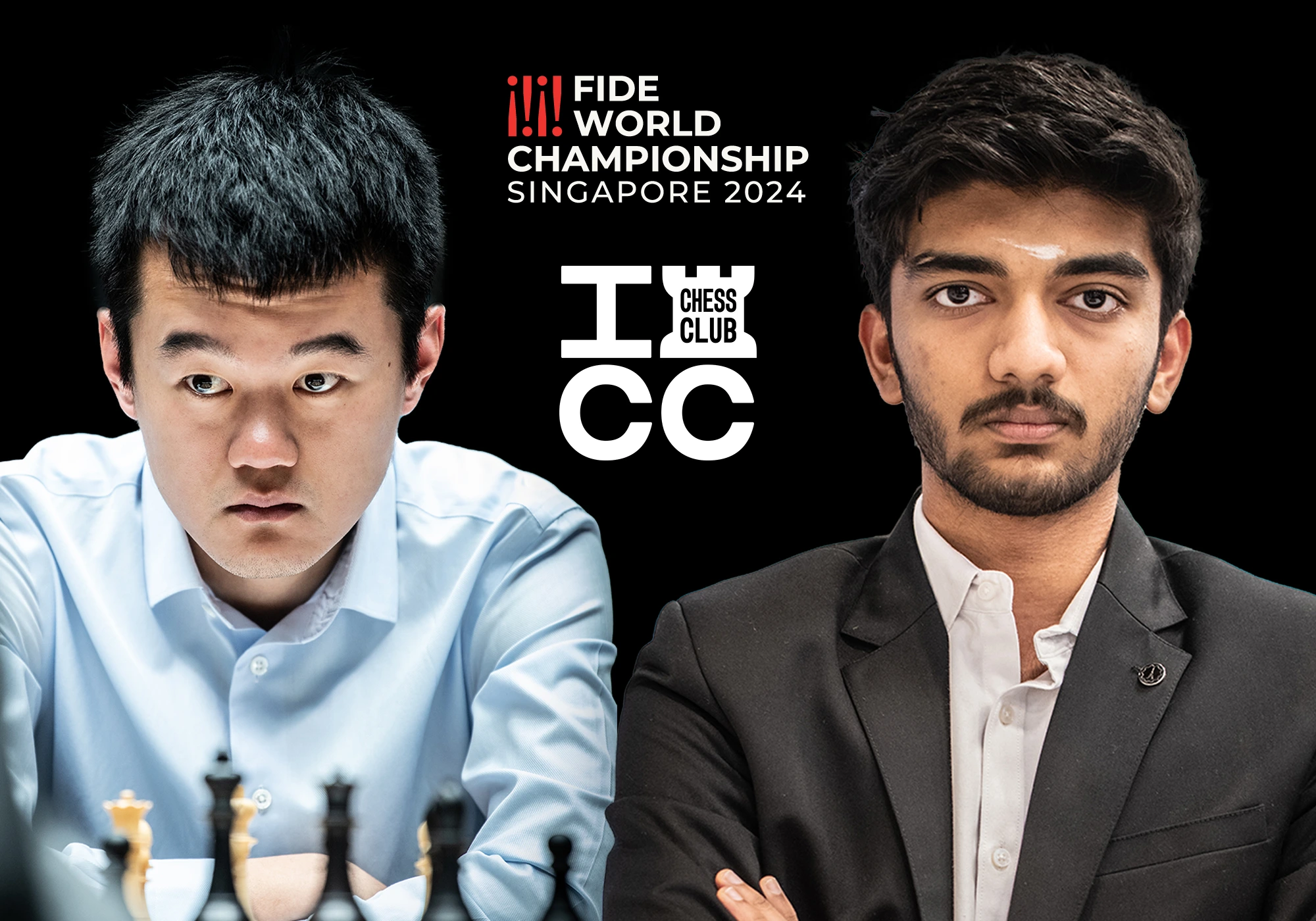Added on 11/21/2024

By David Llada
This is the moment that comes around every two years when everyone shares their predictions about who will win the World Chess Championship and by what margin.
Typically, the reigning champion carries an aura of invincibility and prestige, often leading to overestimated odds. However, every now and then, the hype shifts to the challenger. This is precisely the scenario, taken to the extreme, that we are witnessing in Singapore: a champion in freefall facing a meteoric young challenger who has shaken the chess world over the past year.
"I think it will be a massacre," said Arjun Erigaisi in a short interview posted yesterday by FIDE. Currently ranked World #4, Arjun is four years Gukesh's senior and teammate, and he probably knows him better than anyone.
"There are only two reasonable predictions. It will be close, or Gukesh will win by a significant margin. I shall refrain from cowardice and predict a blowout +2 or +3 win for Gukesh", wrote the internationally acclaimed coach Jacob Aagaard in a post for New in Chess that went out this morning.
Not even Ding seems to have faith in himself: "I am worried about losing very badly," he admitted in an interview with TakeTakeTake.
Will this match really be so one-sided?
Magnus Carlsen doesn't seem to think so. "This match is so open, but I think Ding Liren will get the first chance. I could see a scenario where Ding Liren gets two or three massive chances in the first five or six games. And he absolutely has to take them!" he said. "Based on the current form, Gukesh is a significant favorite. But based on peak chess ability, I think it's quite even. So if Ding can regain that form, he has a good chance," said Magnus at a press conference after the Tata Steel Tournament in Kolkata.
Magnus, besides being the greatest authority in chess, has consistently shown an uncanny talent for making accurate sports predictions - a field in which I have some experience myself.
For over a decade, I worked in the sports betting industry. It was a fascinating time when I had the opportunity to learn from the best in the business of making predictions and setting odds. Modeling games, analyzing data, considering psychology, and factoring in technical aspects - all while gauging how hype would influence the trends and odds in the market.
One thing I learned is that predictions tend to be early victims at any sport's big finals.
Even if the outcome is that the best player wins - and the world chess championship format might have many flaws, but it is very effective in ensuring exactly that - the narrative rarely unfolds as expected. Who could have predicted that Kasparov wouldn't win a single game against Kramnik in London 2000? Or the bloodbath we witnessed in Astana 2023?
The 3-1 head-to-head record in favor of Ding (two victories with Black and two draws) holds little weight. Ding has lost 52 rating points this year and now sits at #23 in the world. Gukesh, on the other hand, has gained 58 points, climbing to #5. These are the hard facts, but they don't tell the full story.
We know Ding has been struggling with depression, something that probably started well before his victory in Astana, and the pressure of going through a grueling world championship match only exacerbated it.
He has admitted to taking medication to help him sleep, and the use of benzodiazepines could explain the poor play and uncharacteristic blunders at Norway Chess. It might also account for the apparent weight gain seen in recent appearances. During this period, the focus was likely on his well-being, not his chess.
If Ding is now off medication, we may see a different version of him in Singapore.
However, "different" does not always imply an improvement.
If Ding can put his struggles aside and bring his A-game, many top players, like Magnus, still consider "peak Ding" to be a more well-rounded player than "peak Gukesh," with a deeper positional understanding. But that's a big "if."
On the other hand, Gukesh is young, and players at his age often experience sudden breakthroughs. It happened in Toronto. The challenger we see in this match could be even more formidable than the one who dazzled at the Candidates.
My Conclusion
All of the above will become secondary once the clock starts ticking and the first moves are made on the board. Both players have earned their spot in the final, and they both have endured multiple tests to be there. Ding has proven his resilience time and again; Gukesh has shown his relentless drive. What is stronger - the hammer or the anvil?
The first exchanges, especially the initial two or three games, can rapidly shift the dynamics and set the tone for the match. The player who disrupts their opponent's rhythm - either with a direct blow or by taking the fight to unfamiliar territory - will seize the initiative. I believe Magnus is spot on with his assessment.
"No plan survives first contact with the enemy," goes the old military adage. Or, as Mike Tyson put it more succinctly, "Everybody has a plan until they get punched in the face."
This truth applies to every World Championship match, but in Singapore, it is more pertinent than ever. Both players are confronting uncertainties about their opponent's current strength.
Here, I will quote Charles Darwin: "It is not the strongest of the species that survives, nor the most intelligent that survives. It is the one that is most adaptable to change".